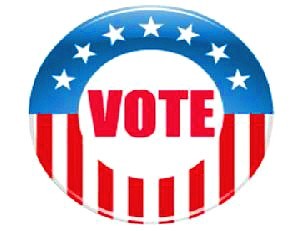The never-ending campaign is exhausting for voters in the 9th Congressional District who are being bombarded with fliers, yard signs and backslapping candidates nearly everywhere they turn. And it's also a strain on county officials who must struggle to find the extra dollars in recession-wracked budgets to hold the extra elections.
Former Republican Rep. Nathan Deal set off this seven-month wave of voting when he decided to step down from Congress to run for Georgia governor. Deal's term does not end until early January, so Gov. Sonny Perdue called a special election - to the chagrin of local election officials - just months ahead of the normal election cycle.
The May 11 special election and the June 8 special election runoff have cost the district's 15 counties hundreds of thousands of dollars combined, local officials say.
In Hall County - the district's most populous - costs for the two elections are about $90,000. In neighboring Forsyth County the price tag is roughly $75,000.
In Lumpkin County, elections supervisor Kimberly Pruitt said the more than $26,000 needed to pay for the special election and subsequent runoff has used all the money she had set aside this year to purchase new voter equipment. And she still has to find another $10,000
Meanwhile, the leading candidates in the race are calling for fiscal austerity, deficit trimming and reduced government spending.
"It's just part of the process," said Mike Dyer, 65, of Gainesville who laughed when asked about the cramped voting schedule. "Seems like we do spend a lot of money getting there, and, you know, seems like it would be nice if they could simplify it a little bit."
Eight candidates competed in a May 11 special election, where Republicans Tom Graves, a real estate developer from Ranger and Lee Hawkins, a dentist from Gainesville, were the top two finishers. Neither candidate won an outright majority, forcing a June 8 runoff election in which voters picked Graves with 56.5 percent of the vote.
He'll be in office just over a month before he has to compete in the July 20 Republican primary for a full, two-year term. Some residents worry voter turnout will suffer because of the back-to-back elections.
"I'm afraid that the wrong people are going to sit home and not go and vote and not take this serious," said Wendy Paradis, commander of the Disabled American Veterans Chapter 17, who was walking Graves around a Memorial Day picnic to meet her members.
Adding to the confusion was that voters could have cast an early ballot for the July 20 primary while voting in Tuesday's runoff election.
"I don't know why the governor chose to have it when he did," said Barbara Luth, supervisor of voter registration and elections for Forsyth County.
Luth said she and other county leaders urged the secretary of state's office to schedule the special election for the same day as the July 20 statewide primary.
The governor's office agreed the schedule was complex but considered the special election the simplest option, Perdue spokesman Bert Brantley said. The governor debated whether to hold the special election and primary on one day, but that would have required voters to cast two ballots for the same job, which Perdue's office thought would be confusing.
The timing of the runoff election would also have been complicated. Under state law, runoffs must follow three weeks after a special election and four weeks after a regularly scheduled primary. Given the large number of candidates, Perdue thought it possible voters could face runoff elections within one week of each other.
Perdue's office thought it possible that candidates might drop out of the race after the special election runoff, reducing the need for a primary runoff, which could have saved money, Brantley said. And delaying an election would have denied north Georgia's voters a chance to have their own representative in Congress.
"It was going to be confusing no matter what," he said. "The cost savings really aren't there."

http://accesswdun.com/article/2010/6/228208
